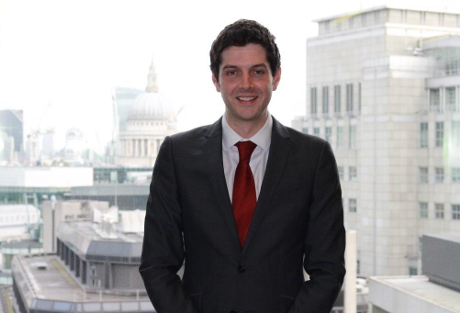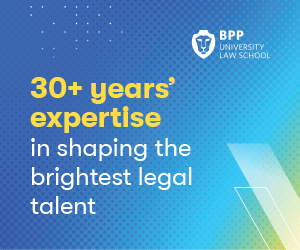
Sep 07, 2020
Written By Billy Sexton, Editor, AllAboutLaw.co.uk
A Client Secondment as Part of an IP & Media Seat
Sep 07, 2020
Written By Billy Sexton, Editor, AllAboutLaw.co.uk

James Currie is a trainee solicitor at Taylor Wessing but is currently undertaking a client secondment as part of his seat in IP and Media. His experience has been a fruitful one thus far, and James recommends that all trainees undertake a secondment if possible, to ensure for ‘a more rounded training contract’.
Could you give us a quick description of what area you’re doing your client secondment in and the kind of work you’re undertaking?
I am working on a client secondment as part of my seat in the IP and Media department at Taylor Wessing. The work is incredibly varied and includes assisting with the drafting of contracts and addenda, publishing agreements, reviewing various legal terms and conditions on the live websites and assisting with a range of other issues including IP and commercial elements.
Did you choose to undertake a client secondment, or is it part of the training contract programme at Taylor Wessing?
Client secondments are not a compulsory part of the training contract programme at Taylor Wessing but they are available. I chose to do either a seat in IP or the secondment and, as it happened, for my particular rotation this seat was split between two trainees each doing three months in IP and three months in secondment.
What do you feel are the benefits to doing a client secondment?
Client secondments are an excellent way to gain a better understanding of client’s needs and goals. They provide first-hand experience of the requirements of a commercial business and the role that law firms play in supporting these requirements. This experience will be hugely beneficial when dealing with clients in private practice as it has given me an insight into some commercial issues which are not always obvious from the outside. In addition is has provided me with some excellent exposure to the running of a large, global, commercial company, the challenges that the company faces and how this differs from the challenges faced by private practice law firms.
Since a client secondment is different from an in-firm programme, is there a support system in place for you?
Even though I am on secondment, I still have an allocated supervisor from Taylor Wessing who can answer any queries I might have. I have also returned to the firm on a number of occasions to undertake the IP training courses provided for trainees in relevant departments. Although my contact with the firm has been relatively limited, I know that there is a strong support network there should I need it. I also still have access to the various online research tools available to Taylor Wessing trainees and these have been very useful throughout my time on secondment.
How much interaction is there with your firm during your secondment? For instance, how do you receive feedback?
As stated above I have managed to maintain some form of regular contact with Taylor Wessing however this has required me to be more proactive than would be necessary if I was at a seat within the firm. As an example, I choose to attend the fortnightly IP departmental meetings as a way of maintaining contact with the department that I will be joining when the secondment finishes. I have regular meetings with my supervisors on my secondment to receive feedback and discuss any ongoing tasks.
What has been your most memorable or valuable experience in your secondment so far?
On the first day of my secondment I was asked to attend an external meeting as part of a team negotiating a significant deal with another large company in the digital space. This immediately gave me an idea of the nature of this exciting and innovative business and the kind of work I would be taking part in during my secondment.
What is your main piece of advice for those considering undertaking a client secondment?
I would recommend all trainees to undertake a client secondment (or any secondment) wherever possible. Client secondments provide trainees with invaluable experience of working in different environments and encountering a different set of challenges than those which might be faced in the private practice environment. It can be very useful to improve client facing skills as well as commercial awareness and, I believe, it adds to a more rounded training contract.
Interviews
- Talking vacation schemes and training contracts with White & Case
- What is life like as a legal trainee within the Government Legal Department?
- "All are equal under the law"
- "People are at the heart of everything that we do" : diversity and inclusion at RPC
- 'A Day in the Life' with Mills & Reeve Trainee, Inderpreet Heire

